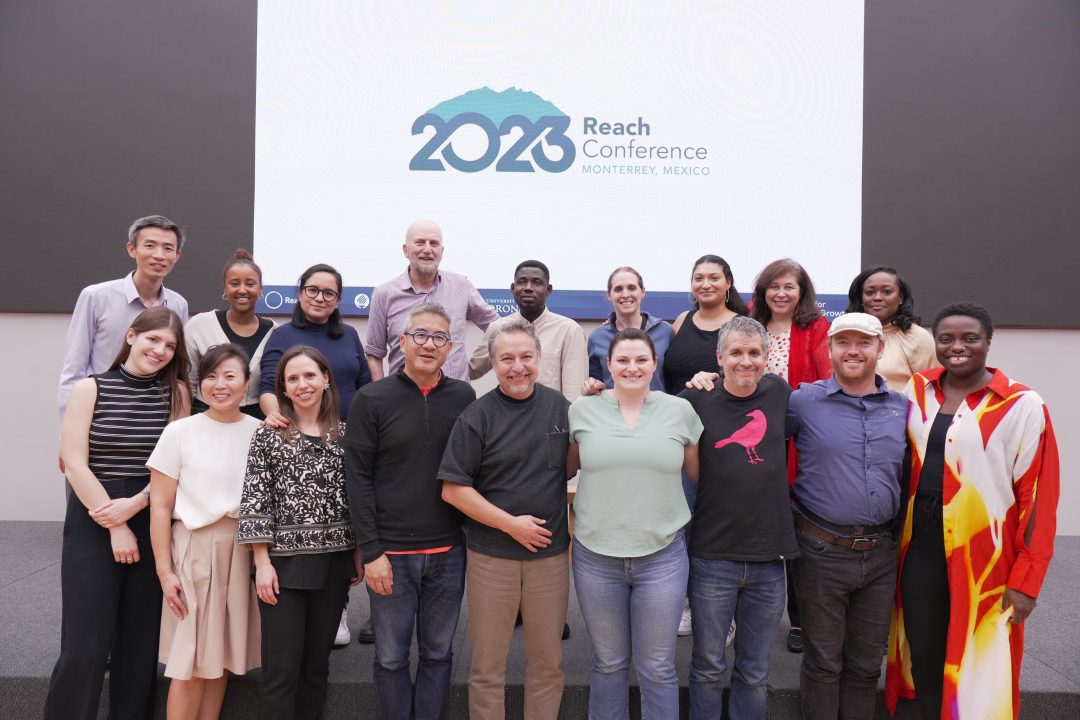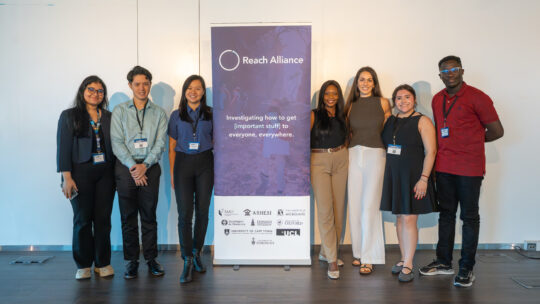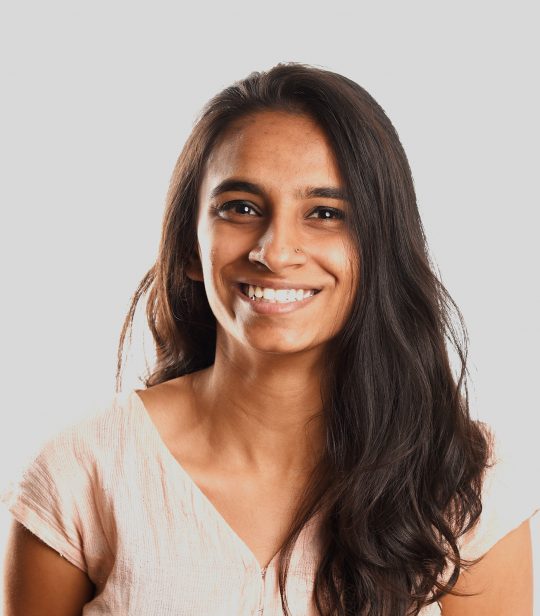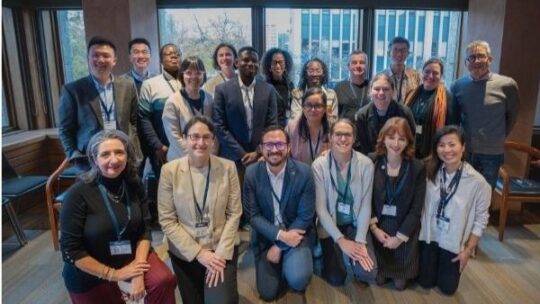Blogs: Latest Blogs
Transformative Mentorship

Reach Alliance faculty mentors are essential in cultivating thoughtful global leaders—not only case study experts but also creative thinkers. By bridging the gap between research and industry expertise, our faculty mentors are helping to shape a cohort of innovators prepared to tackle global challenges.
Mentorship’s Transformative Power
A strong mentorship partnership cultivates creativity, builds confidence, and inspires a life-long pursuit of knowledge. Professor Sarah Haines, faculty mentor from the University of Toronto, sees her role as striving “to create an inclusive environment where students are valued on their merits. The Reach Alliance helps me accomplish this goal through the students they recruit and the projects they choose.” Throughout the year Reach actively recruit multidisciplinary faculty mentors whose wide-ranging contributions and passion for the mission enhance Reach’s impact. By fostering multi-disciplinary thinking, faculty mentors help students to navigate the complexities of various fields while promoting collaborative approaches to problem-solving.
Professor Disraeli Asante-Darko, faculty mentor from Ashesi University, told us that “Ashesi University’s originality and high standards are in large part due to the institution’s openness to and celebration of a wide range of cultural expressions. Ashesi embraces different yet holistic ways of thinking and is poised to propel Africa toward its renaissance”.
By participating in the Reach Alliance, faculty mentors also gain valuable exposure to a dynamic network of industry practitioners, thought leaders, and fellow researchers. This collaboration enriches their own understanding but also drives impactful work aligned with the United Nations’ Sustainable Development Goals (SDGs).
Learning in Action
Fostering partnerships across countries and regions, our global faculty mentors collaborate in crafting solutions that are both locally relevant and globally significant. And that’s not easy work.
Dr. Kate Roll at University College London notes, “There are many institutional challenges in implementing interdisciplinary work. Universities need to create new pathways and innovate administrative processes across silos to allow for impactful teaching and learning Initiatives like Reach.”
Producing World-Class Research and the Leaders to Action It
Future scientists, policymakers, innovators, and corporate champions are sitting in classrooms today. Their perspectives and commitment to social impact are essential for leading next-generation organizations across the private, public, and third sectors. And they need mentors.
Our current active faculty mentors and those who have participated over the last eight years have made a big difference in students’ lives and careers. See the full list of global mentors here: https://reachalliance.org/faculty-mentors/.
Our global research teams have published in the The Lancet, the BMJ Global Health, The WHO Bulletin, Standford Social Innovation Review, and many other leading outlets.
We invite our global faculty participating in the upcoming 2024 Reach Conference this November to join us for exclusive programming designed just for them. This full-day event will feature dynamic brainstorming sessions focused on innovative approaches to knowledge translation within the Reach initiative and the essential role of faculty mentors. Topics will include teaching innovation, producing impactful research, and advancements in higher education. Attendees will come away with practical tools and strategies to effectively integrate these insights into their teaching, research, and mentoring practices, enhancing their contributions to the SDGs and the global community.



